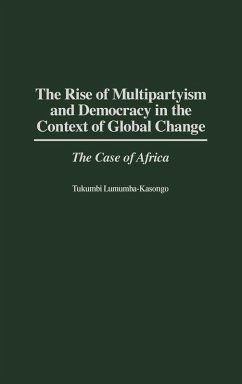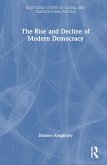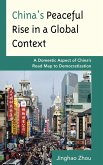Lumumba-Kasongo examines those forces that contributed to the fate of multiparty democracy in Africa. The forces include the state, political parties, ethnicity, nationalism, religion, underdevelopment, and the global market. Multipartyism in Africa is not necessarily democratic. However, the processes toward multipartyism can produce democratic discourses if they can be transformed by popular and social movements. As the author points out, almost all social classes have demanded some form of democracy. Yet the sociological meanings and teleological perspectives of those forms of democracy depend on an individual or group's economic and educational status. The dynamics of the global context, as reflected in the adoption of the structural adjustment programs of the World Bank and the stability programs of the International Monetary Fund, are likely to produce non-democratic conditions in Africa. Lumumba-Kasongo challenges the existing paradigms on democracy and development, so the book is of considerable interest to scholars and policy makers involved with African politics and socio-economic development.
Hinweis: Dieser Artikel kann nur an eine deutsche Lieferadresse ausgeliefert werden.
Hinweis: Dieser Artikel kann nur an eine deutsche Lieferadresse ausgeliefert werden.








